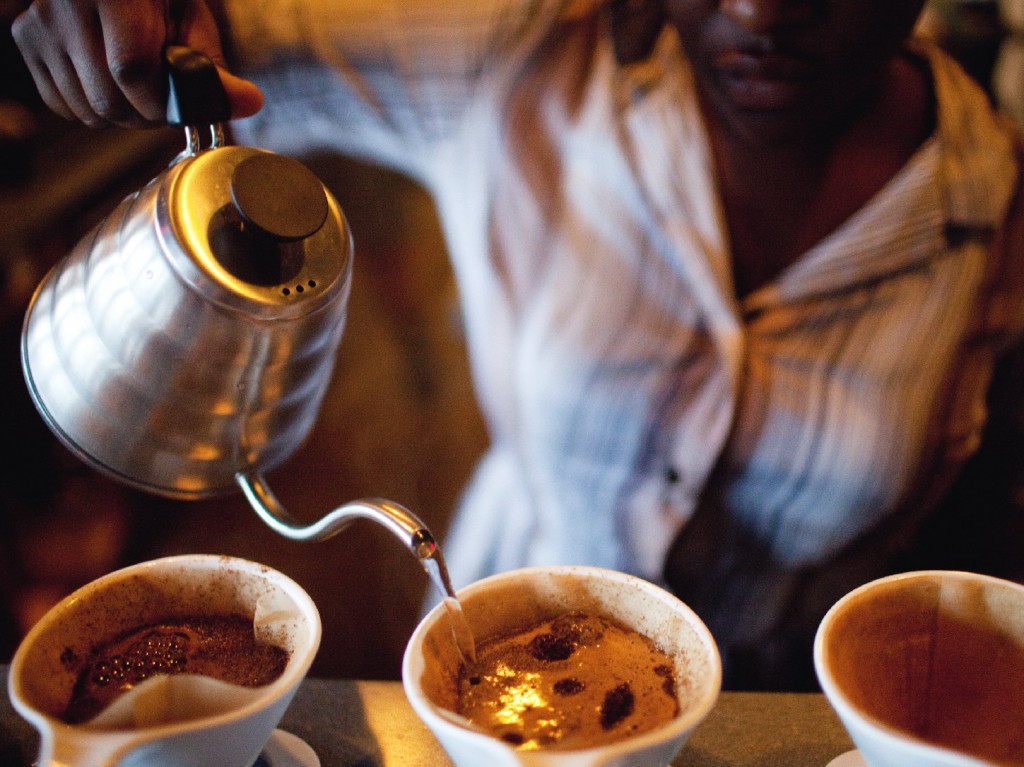To compare the hydrating effects of coffee directly with water, each participant completed two phases of the study. In one phase, they drank coffee as their main source of hydration. In the other phase, the participants went off coffee and drank equal amounts of water.
"Caffeine really had absolutely no influence on hydration status," concludes Douglas Casa of the University of Connecticut, a researcher we asked to review the paper. In other words, the coffee didn't prompt the body to pee (or flush out) more fluid.
"It's well understood that if you drink coffee habitually you can develop a tolerance to the potential diuretic effects of coffee," says study author Sophie Killer, a doctoral researcher at Birmingham.
Prior research has already chipped away at the dehydrating myth. For instance, one study found that caffeine didn't hinder hydration among athletes who consumed caffeinated beverages to rehydrate throughout practices in the heat.
This new study adds to the evidence, that among everyday coffee drinkers — say, those of us who routinely sip a cup of Joe or two at the office — the wives' tale that coffee will lead to dehydration is really just that: a tale.
But it would be an overreach to interpret these findings as coffee-is-the-same-as-water when it comes to overall health. Too much coffee can lead to jitters. And most experts agree that water or sports drinks are best for re-hydrating after fluids have been depleted.
Bottom line: A daily coffee habit won't lead to dehydration. But it's best to limit caffeine to moderate levels in order to steer clear of jitters and interruptions to sleep.
And, oh, I should mention another new study that links caffeine to enhanced memory.
The research, published in Nature Neuroscience, evaluated the effects of placebo tablets compared to 200 milligrams of caffeine tablets (about as much caffeine as a large cup of coffee) on the memories of participants who were shown a series of images.
One day after the initial viewing of the images, the participants who had been given the caffeine tables were more likely to distinguish between the images they had already viewed and new, similar images that had been added to the mix.
"We've always known that caffeine has cognitive enhancing effects, but its particular effects on strengthening memories and making them resistant to forgetting has never been examined in detail in humans," wrote Michael Yassa of Johns Hopkins University in a release about the study.
"We report for the first time a specific effect of caffeine on reducing forgetting over 24 hours," wrote Yassa.
There are certainly a lot of questions yet to be answered. For instance, caffeine may help to consolidate memories in the short-term. But is it useful in helping us retrieve memories? This study suggests not.
As we've reported, caffeine-containing nectar has been shown to improve the memories of honeybees, so stay-tuned — there may be more buzz about the effects of caffeine on memory in research still to come.
Copyright 2014 NPR.
